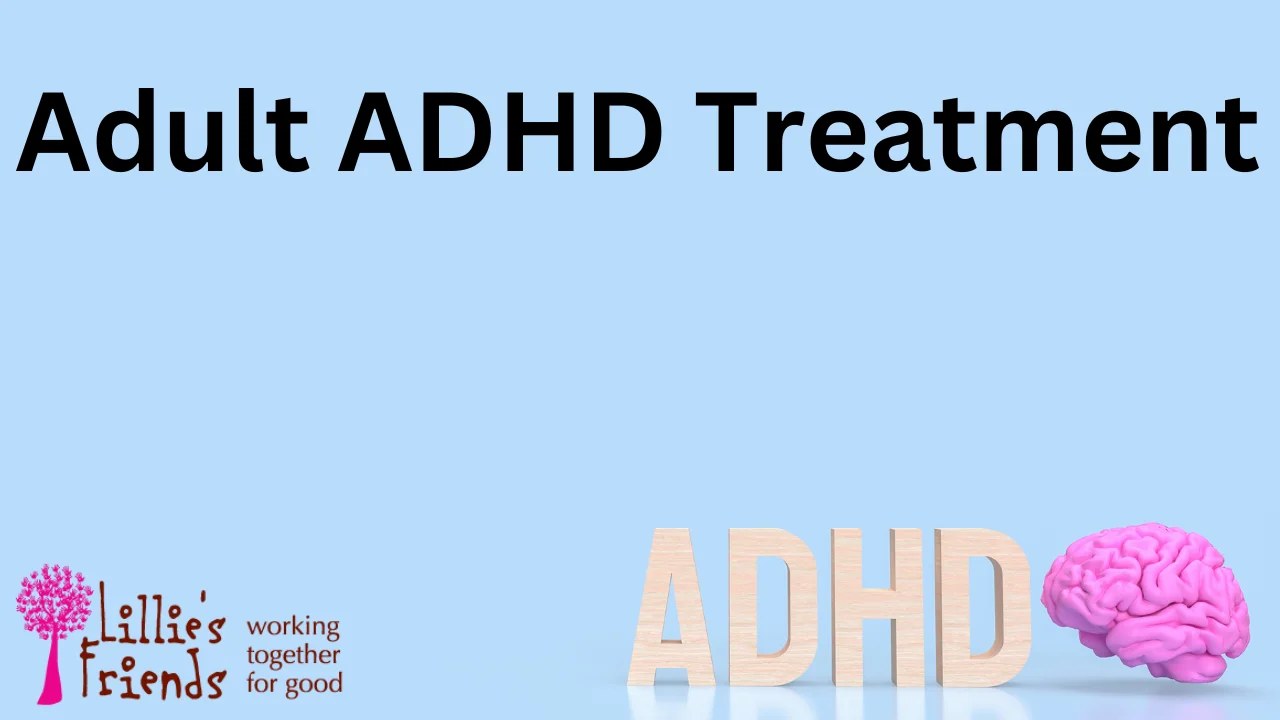A wide variety of behaviors that make even basic tasks difficult or impossible to complete may be brought on by symptoms of ADHD/ADD. It is still critical to address the behaviors and routines associated with ADHD, even if medication is a common therapy and may lessen symptoms. It enhances the person’s general functioning and helps them prevent relapse.
ADHD treatment targets problematic behaviors common to people with ADHD by arranging time at home, establishing stability and routines, and increasing positive attention.
Seeking professional help and having the optimal therapy or course of treatment decided for you is important. To find out more about the best treatments for adult ADHD, keep reading.

How Successful Is ADHD Therapy?
Adult ADHD is best treated with a combination of skill improvement, medication, and therapy. Adults with ADHD who get both behavioral therapy and medication are more adept at controlling their symptoms than those who simply receive medication, according to research [1*] studies.
Organizational skills and self-worth also seem to improve. Therapy helps ADHD patients learn how to manage their symptoms, concentrate on their strengths, and handle stress more effectively. Whether you’re learning to curb cravings, embrace and value who you are, or manage activities, therapy may make a big difference in your quality of life. As a result, ADHD therapy helps patients learn new behaviors and how to practice them consistently over time until they come naturally and easily.
ADHD treatments
Adults with ADHD may receive treatment such as cognitive behavioral therapy (CBT), mindfulness-based therapy, and short motivational interviewing. The following therapeutic approaches are worth considering for adults diagnosed with ADHD.
1. CBT, or cognitive behavioral therapy
Individuals with ADHD encounter frustrating setbacks more often in social, professional, and daily contexts. They may have so many setbacks that they begin to question their own talents. On rare occasions, it causes negative emotions, erroneous self-perceptions, and cognitive errors.
CBT therapies, whether combined with or apart from medication therapy, have been advantageous [2*] for people with ADHD. They may address problems with daily planning, organization, and time management with the use of CBT. Stress management, impulse control, and emotional self-regulation are other areas of focus.
- Adults suffering from ADHD who make use of
- CBT might gain from
- Cognitive restructuring refers to altering one’s mental model.
- behavioral and coping mechanism modifications (altering how you respond to something)
- Reliability, tolerance, or awareness
- Application methods
2. Cognitive Therapy Based on Mindfulness (MBCT)
Mindfulness-based cognitive therapy combines mindfulness meditation with traditional CBT procedures (MBCT). When someone practices mindfulness, their focus is maintained in the here and now, promoting an open and conscious mental state. Thoughts and sensations that arise during mindfulness exercises are recognized rather than criticized. Research [3*] indicates that mindfulness meditation helps improve several brain functions associated with attention deficit disorder (ADHD), including mood management and attention control.
3. Concise Motivational Interviewing
Motivational interviewing is a therapeutic approach that attempts to instill in clients the willpower to make positive behavioral changes. It is unique in that it empowers people to take responsibility for their own healing. Motivational interviewing has been shown to be a successful intervention strategy for treating physical activity, diabetes, smoking, and sexual behavior, among other health conditions and habits.
Motivational interviewing may be used in conjunction with cognitive behavioral therapy (CBT) to treat comorbid problems associated with ADHD, such as depression, anxiety disorders, and social anxiety disorder. Motivational interviewing may be especially helpful for those who are first hesitant to start a treatment program or who are not ready to make the necessary adjustments in their lives.
Make online connections with licensed therapists. Each patient’s demands are taken into account while designing our treatments.
4. ADHD Guidance
Coaching may assist individuals in organizing themselves and achieving their goals when used in combination with medication and other therapy for ADHD. A trained specialist who works with you to create techniques for handling the everyday responsibilities and goals that ADHD symptoms make more challenging is known as an ADHD coach. Coaching for ADHD helps people understand how ADHD affects them and teaches them how to form positive behaviors. After that, a coach may help you develop problem-solving skills and can act as a reliable accountability partner to support you while you make changes to your behavior.
ADHD coaching teaches you how to:
- Pay attention for as long as it takes to finish a job.
- Identify the exact actions you need to perform in order to achieve a goal.
- Get the motivation you need to achieve your objectives.
- Give up bad habits and create wholesome daily routines.
5. Occupational Therapy
Those who need support with their employment or leisure activities might benefit from occupational therapy. Changing their surroundings or location of employment, as well as developing their skills, may help them engage more.
Occupational therapy’s objectives are to:
- Help set up the locations of important items as well as the activities’ timetables, organization, and routines.
- Promote social connections that are healthy and under control. This might include role-playing or educating family members about the person’s background and habits.
- aid in the use of planning and time management techniques. You will go from “reacting mode” to “planning mode” in order to do this. It may include soothing techniques.
- Help identify potential triggers for sensory hyperreactivity and take steps to mitigate the effects on symptoms of ADHD.
6. Treatment for Dialectical Behavior (DBT)
Another kind of behavior treatment for ADHD is called DBT. Even though it was first created for those who had borderline personality disorder (BPD), it is now a well-received intervention for enhancing emotional control abilities. One of the main signs of ADHD is emotional dysregulation.
Emotions are experienced more intensely by those with ADHD than by those without the condition, and this is one of the hardest symptoms to manage. DBT places a strong emphasis on the emotional and social challenges that ADHD causes. DBT is taught in weekly group sessions using a sequence of skill-based modules, each focused on a distinct skill. Individual therapists may provide additional support to enable you to tailor the ways in which you use these skills in practical situations.
7. Reflexology
Patients with ADHD who get neurofeedback report improvements in focus and a reduction in impulsivity. By instructing the brain to create brain-wave patterns associated with attention rather than those associated with daydreaming, neurofeedback helps reduce the symptoms and behaviors of ADHD. To find out whether neurofeedback is helpful in treating ADHD problems, however, further study on the subject is required. This therapy for ADHD is controversial due to a lack of research.
8. Using Art Therapy
When it comes to written or spoken language, people with ADHD find it more difficult to communicate their ideas than via creative expression and visual images. Art therapy may be very beneficial for hyperactive persons with ADHD because it keeps their hands busy and helps them maintain a strong emotional and mental concentration, which can be difficult to maintain in conversation therapy. Through art therapy, adults with ADHD may improve their communication, cognitive flexibility, and problem-solving skills as they explain their works to their ADHD therapist. It’s also feasible to have organic social connections via art, such as material exchanges, praises, and even ideas.
9. Use of music therapy
Since the mind and body are inextricably intertwined, improving one requires improving the other. Music has a tremendous effect on our thoughts and emotions. The right music may change your emotions. For instance, listening to music to elevate your spirits or calm down can help you recover physically.
Music therapy is beneficial for ADHD individuals as well because of the unique rhythms and beats that it contains. To a brain trying to regain equilibrium, they are soothing. Furthermore, since music has a distinct beginning, middle, and conclusion, it is predictable. For someone who is disorganized or scatterbrained, this may be very calming and can also serve as brain training.
In summary
When receiving behavioral therapy (with or without medication), people with ADHD are able to adopt new, healthier habits and more effectively control their symptoms [4*]. It has been shown that treating ADHD in adults and children alike may benefit from ADHD treatment. These programs teach behavioral, social, and intellectual skills that may help an individual with ADHD manage their symptoms throughout their life.











